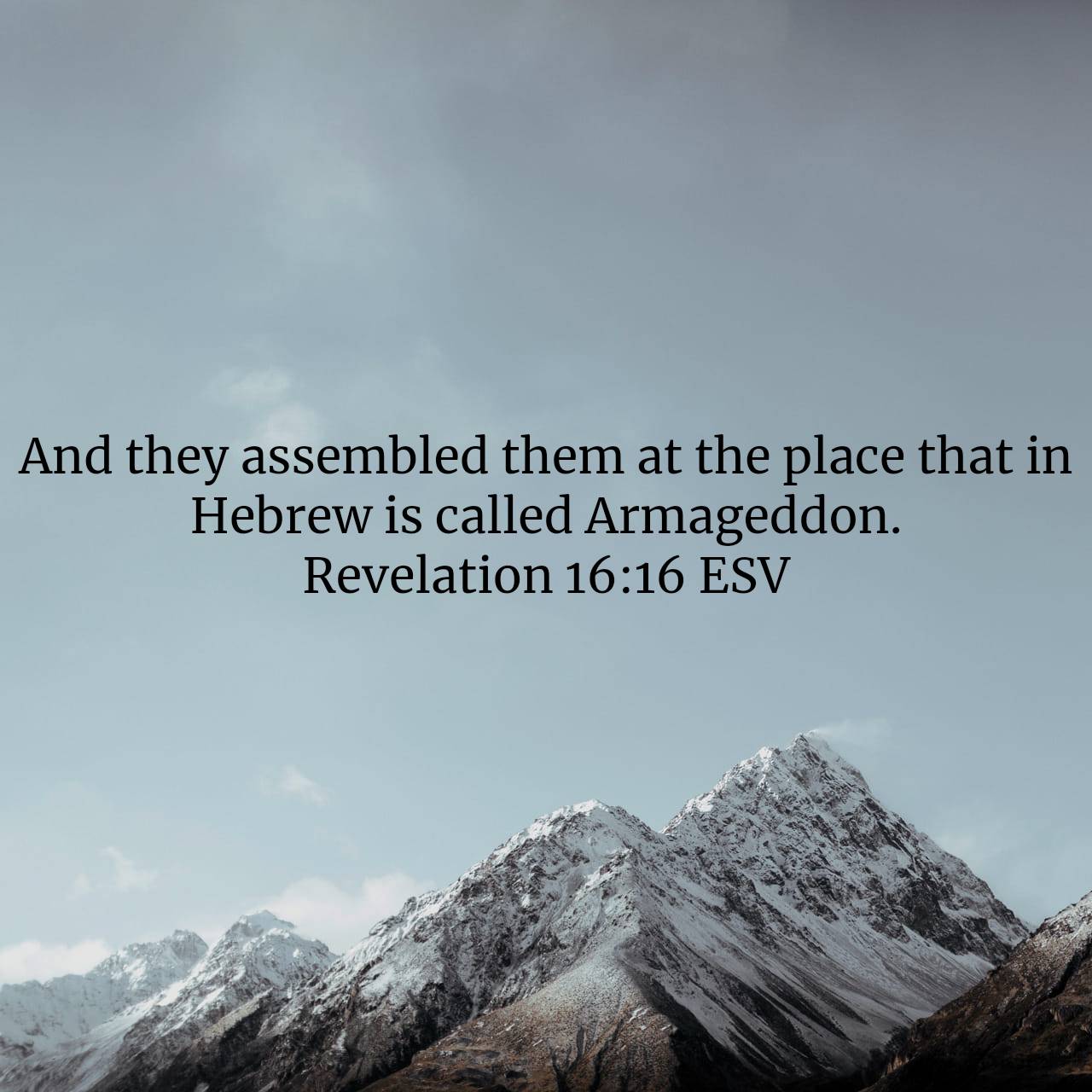Devotional 12 April 2025

The name Armageddon has become a byword for the end of the world, but its true meaning is far more sobering—and more specific. “Armageddon” is a Hebrew compound: Har-Megiddo, or “Mount Megiddo.” But there’s a twist—there’s no mountain at Megiddo. Megiddo is a low plain, not a high place. This signals something deeper: this is symbolic geography, not literal terrain.
Megiddo was the site of great defeat for the people of God. Most famously, King Josiah, one of Judah’s most faithful rulers, was killed there after ignoring God’s warning not to confront Pharaoh Neco (2 Chronicles 35:20–24). It was a place of foolish confidence and unexpected tragedy. In that light, Armageddon becomes a powerful symbol—not of global apocalypse, but of spiritual failure and divine judgment.
Revelation 16:15 had just reminded readers to “stay awake,” echoing Jesus’ warning for disciples to flee when they saw Jerusalem surrounded by armies (Luke 21:20–22). Many faithful Christians did heed that warning and escaped when Vespasian withdrew his armies. But when Titus returned, Jerusalem doubled down in arrogance—destroying its own food supplies in religious confidence, trusting that God would deliver them again.
But this was not deliverance—it was judgment. Revelation identifies Jerusalem as “the great city” and calls it “Babylon” (Revelation 11:8; 17:5, 18). When the Roman armies gathered once more, it was Jerusalem, not Rome, that stood under God’s wrath. And so Armageddon—the “Mount of Megiddo”—becomes Mount Failure. The Temple Mount, once the symbol of God’s dwelling, now echoed with the sounds of destruction.
Just as Megiddo was Josiah’s tragic end, Jerusalem’s rejection of Christ brought about its own downfall. This is the lesson of Armageddon: when we resist God’s Word and cling to false hopes, we turn sacred ground into ground zero. May we stay alert, cling to Christ, and never confuse religious zeal with true obedience.